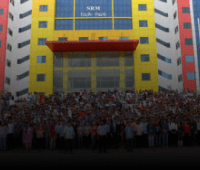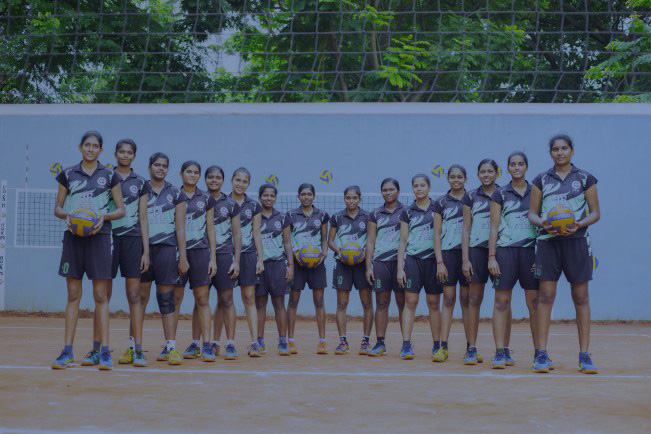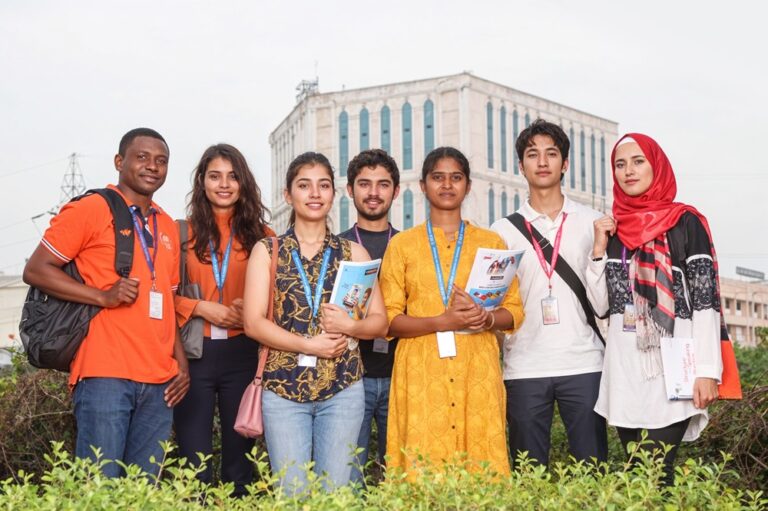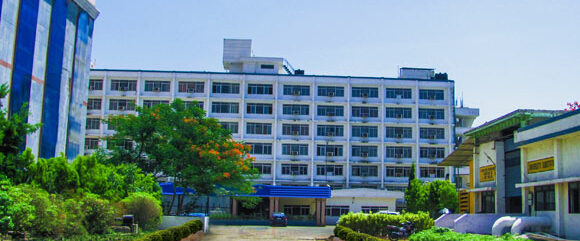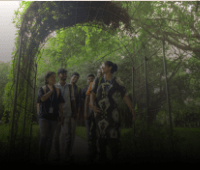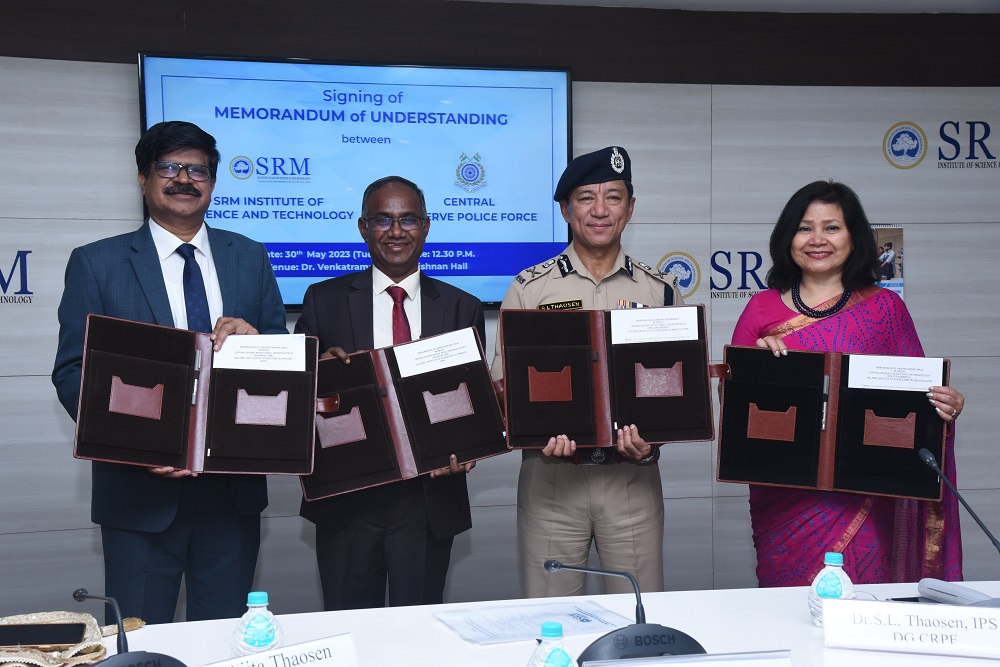SRM Institute of Science and Technology and the Central Reserve Police Force (CRPF) On Tuesday, signed Memorandums of Understanding, one of which provided free B.Tech. programmes for three martyrs’ children in addition to educational opportunities for children of CRPF staff.
Free seats:
The key component of one of the MoUs is 3 free seats every year for children of personnel of all ranks of CRPF who have attained martyrdom during their service to pursue B.Tech programmes at SRMIST.
In the presence of the Director General of the CRPF, Dr. S.L. Thaosen, and the President of CWA, Ms. Ajitha Thousen, the MoU was signed by Ms. Jeyaseeli Dhinakaran of the Regional CWA-CRPF Welfare Association and Dr. C. Muthamizhchelvan of SRMIST.
Another MoU between CRPF – India’s largest and longest service central police force and SRMIST – India’s pre-eminent institution offering higher education programmes in engineering, technology, management, medicine, agriculture, law, and arts and science to initiate interaction between the two and to enable training and research in various disciplines was signed by Inspector General of Police, Mr. Rajesh Kumar, CRPF and Vice Chancellor Dr. Muthamizhchelvan.
Huge challenges ahead:
Dr. Thousen, who was speaking at the occasion, said that addressing developments in science and technology, 5G connectivity, and contemporary devices will be an important challenge for law enforcement and security organisations. He stated that he hoped organisations like SRM will collaborate with them in their Communication Institute, formerly known as Signal Battalion. He claimed that the key organisation in charge of preserving internal security and law and order was the CRPF. “Whenever trouble breaks out, CRPF is always the first to go – be it Jammu and Kashmir, especially after the abrogation of Article 370, the current crisis in Manipur, or tackling left-wing extremism,” the CRPF chief said.
Training on technology will increase:
Later, during a brief media conversation, Dr. Thousen stated that after recently reviewing their training programmes, they had come to the conclusion that more technological exposure was needed, particularly during the initial training of 50 or 52 weeks as well as in-service courses.
In response to a specific question, he stated that factors such as areas served, years of service, and others would be taken into consideration while choosing qualified candidates for the free seats for B.Tech programmes for children of CRPF members who were killed in action.
SRMIST’s commitment to science & technology:
Dr. Thousen last visited SRMIST, it was during the previous prime minister Dr. Manmohan Singh’s successful inauguration of the Indian Science Congress. Dr. Thousen said, “The successful conduct of the Science Congress is a testimony to SRM’s commitment to education in science and technology,” and he also acknowledged the institution’s management for its gesture for staff training and for providing seats for kids.
Milestone for SRMIST:
In his address, Dr. Muthamizhchelvan said the MoU was a milestone in the history of SRMIST – India’s largest multi-disciplinary higher education institution. The MoU with India’s largest central police force was unique as it gave scope for both parties to benefit from one another’s experiences while also showcasing their respective advantages.
He claimed that the MoU was their small contribution to the CRPF troops who were killed in the line of duty.
Dr. S. Ponnuswamy, SRMIST’s registrar, gave a warm greeting to everyone in presence, and Dr. T.V. Gopal, dean of the college of engineering and technology, proposed the vote of thanks. Senior CRPF officers were present, including Mr. M. Dhinakaran, DIG, CRPF, Avadi, and Ms. Jeyaseeli Dhinakaran, President, Regional CWA.


